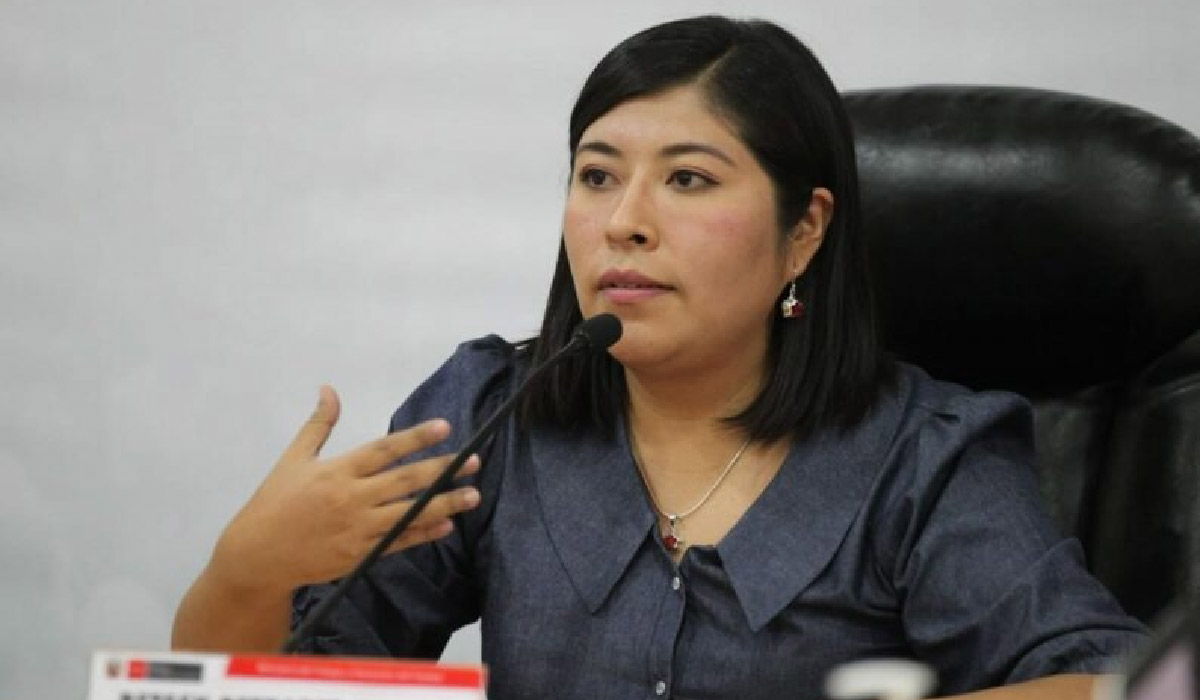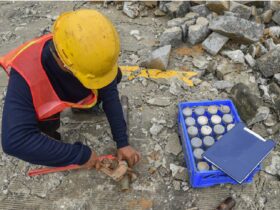Introduction
The phrase “Desaforan A Betsy Chaves” has become one of the most controversial and widely discussed topics in Peru’s recent political history, representing far more than the legal removal of parliamentary immunity from a public official—it embodies a moment of political upheaval, public outrage, and international concern. Betsy Chaves, a prominent Peruvian congresswoman, had built her career on fighting for labor rights, gender equality, and government transparency, making her a respected yet polarizing figure. In Latin American politics, “desaforar” refers to stripping a lawmaker of the legal immunity that protects them from prosecution while in office.
While this mechanism is intended to hold officials accountable, in Chaves’ case it quickly escalated into a highly suspicious sequence of events: her immunity was removed, she vanished from public life, and the country erupted in debate over whether this was justice served or democracy undermined. The shockwaves from this case have not only gripped Peru but also drawn international attention, as human rights groups and legal experts question the motives, legality, and fairness of the process.
Who is Betsy Chaves?
Betsy Chaves is widely recognized in Peru as a fearless and outspoken political leader whose career trajectory reflects a commitment to progressive reform. Born and raised in a working-class family, she pursued higher education with determination, earning degrees in law and political science before entering public service. Her political rise began with grassroots activism, where she became a strong advocate for labor unions and workers’ rights, later transitioning to legislative work with a focus on social justice, anti-corruption measures, and government accountability.
Chaves entered Congress as part of a progressive political coalition, quickly gaining a reputation for challenging entrenched political elites and resisting pressure from powerful interests. Her speeches often called out systemic inequalities and demanded greater transparency in public spending, earning her admiration from supporters but animosity from political rivals. As a woman in a male-dominated parliament, she was no stranger to public scrutiny and misogynistic attacks, yet she consistently positioned herself as a reformist voice unwilling to be silenced.
Understanding the Term “Desaforar” in Latin American Politics
In the political and legal systems of many Latin American countries, “desaforar” is a constitutional process designed to remove the legal immunity granted to lawmakers, enabling criminal prosecution against them while still in office. In Peru, as in other nations, parliamentary immunity is meant to safeguard elected officials from politically motivated arrests or lawsuits, ensuring they can speak and vote freely without fear of retaliation.
However, while its purpose is rooted in protecting democracy, desafuero can also be weaponized as a political tool, used to sideline rivals under the guise of legal accountability. History in the region is filled with examples where desafuero was applied under questionable circumstances, sparking debates over whether it was a legitimate act of justice or a tactic to silence dissent. In the case of “Desaforan A Betsy Chaves”, critics argue that the move came with insufficient evidence, rushed procedures, and a suspicious political context, making it a textbook example of how the process can be manipulated for partisan advantage.
The Official Reason for Betsy Chaves’ Desafuero
When authorities announced “Desaforan A Betsy Chaves”, the stated justification centered on allegations of misuse of public funds and abuse of authority. According to the official narrative, Chaves was accused of financial irregularities during her tenure, including mismanagement of allocated budgets and unauthorized expenditures. These accusations, however, were presented without comprehensive public documentation, and many observers noted that the charges appeared vague and lacked clear timelines or verifiable evidence.
Remarkably, the desafuero process against Chaves was completed in just a matter of days, bypassing the extended investigative phases typically seen in similar high-profile cases. Furthermore, independent audits conducted prior to the allegations had not revealed significant discrepancies in her financial management, leading many to suspect political motivations behind the sudden push to remove her immunity.
The Controversial Legal Process
One of the most troubling aspects of the “Desaforan A Betsy Chaves” case lies in the way the legal process was conducted. In standard procedure, a desafuero involves a preliminary investigation, a formal presentation of evidence, opportunities for defense, and a parliamentary vote following public debate. In Chaves’ case, these steps were compressed into a rapid sequence with minimal transparency, effectively denying her the ability to mount a comprehensive defense.
Her legal team publicly stated that they were given insufficient notice and access to relevant case materials, which they argued amounted to a violation of her constitutional rights. Compared to other political cases in Peru, where desafueros can take months or even years to conclude, the speed and secrecy surrounding Chaves’ removal raised immediate red flags. Legal analysts have since pointed out that this rushed process may have set a dangerous precedent for bypassing due process in politically sensitive cases.
The Disappearance of Betsy Chaves
Perhaps the most alarming development following the desafuero was Betsy Chaves’ sudden disappearance. Within days of losing her immunity, she was absent from scheduled public appearances, unreachable by the media, and missing from official legal proceedings. The last confirmed sighting placed her at a closed-door meeting with colleagues, after which no verified appearances have been documented.
Her family released a brief statement expressing deep concern for her safety and requesting privacy, while avoiding any speculation about her location. Police involvement in the search was initially slow, and investigative updates to the public were scarce, further fueling speculation and mistrust. The disappearance transformed the legal controversy into a full-fledged mystery, with supporters fearing for her well-being and critics questioning whether she fled to evade justice.
Conspiracy Theories and Speculation
The mystery surrounding “Desaforan A Betsy Chaves” has spawned a wave of theories attempting to explain her vanishing act. Some believe she is the target of political persecution and has gone into hiding to protect herself from threats. Others speculate she may have left the country voluntarily to avoid arrest, potentially seeking asylum abroad. A darker theory suggests that her disappearance could be linked to threats from organized crime networks connected to political corruption cases she had been investigating.
There are also claims, albeit unverified, that she might be under unofficial protective custody. Each theory reflects deep public mistrust in official narratives and highlights how little concrete information has been shared by authorities. Without transparency, the line between fact and speculation continues to blur.
Public and Media Reaction
Media coverage of “Desaforan A Betsy Chaves” has been deeply polarized, with some outlets framing her removal as a victory for anti-corruption efforts, while others see it as a blatant act of political persecution. Social media amplified the debate, with hashtags like #JusticiaParaBetsy and #DondeEstaBetsy trending nationally. Protesters have organized rallies in Lima and other cities, demanding answers about both her desafuero and disappearance.
Online petitions have gathered thousands of signatures calling for a full independent investigation. Citizen journalism has played a major role, with activists and independent reporters sharing alternative narratives and scrutinizing the inconsistencies in official statements.
Gender and Political Persecution
The case of “Desaforan A Betsy Chaves” cannot be separated from the gender dynamics of Peruvian politics. As a woman in a male-dominated legislative body, Chaves faced disproportionate scrutiny throughout her career. During the desafuero process, critics often described her in gendered and dismissive terms such as “emotional” or “manipulative,” language rarely applied to her male counterparts.
Feminist groups across Latin America have condemned the handling of her case as an example of how political and gender-based biases intersect, leaving women in leadership more vulnerable to public vilification and institutional targeting. This gendered lens has mobilized new waves of activism, linking her situation to broader struggles for equality and representation.
The Political Climate in Peru at the Time
The backdrop to “Desaforan A Betsy Chaves” was a turbulent period in Peruvian politics, marked by corruption scandals, power struggles, and declining public trust in institutions. Chaves had become increasingly vocal in opposing controversial legislation proposed by the ruling party, directly challenging influential figures within the government. Her growing popularity and uncompromising stance threatened established political alliances, making her a prime target for political neutralization. Analysts suggest her removal was strategically timed to weaken opposition voices ahead of significant legislative reforms.
International Response and Human Rights Concerns
International organizations quickly took notice of the “Desaforan A Betsy Chaves” case. Amnesty International and Human Rights Watch issued statements expressing concern over the lack of due process and the alarming disappearance of a democratically elected official. The United Nations released a brief urging the Peruvian government to ensure her safety and uphold democratic principles. Legal experts from across Latin America have pointed out that using desafuero without transparent procedures undermines democratic integrity and risks legitimizing authoritarian practices.
The Ongoing Investigation
While Peruvian authorities claim to be investigating both the legal charges and Chávez’s disappearance, progress has been slow and largely opaque. Independent NGOs and human rights lawyers have initiated their own inquiries, while her legal team is pursuing an appeal to annul the desafuero on constitutional grounds. There are also growing calls within Congress to establish an independent commission with oversight powers to investigate the matter thoroughly.
Impact on Peruvian Democracy
The “Desaforan A Betsy Chaves” case has already left a lasting impact on Peru’s democratic landscape. It has deepened public skepticism toward political institutions and highlighted the urgent need for legal reforms to prevent abuse of the desafuero process. If left unresolved, it risks setting a precedent where political rivals can be swiftly removed without due process, eroding the safeguards meant to protect representative democracy.
What Happens Next?
Possible scenarios range from Chaves reemerging to fight the charges to confirmation that she has sought asylum abroad, or even the grim possibility of foul play being proven. Should her desafuero be overturned, it could trigger a political crisis and major shifts in the balance of power within Congress. Regardless of the outcome, the case will influence Peruvian politics for years to come.
Conclusion
At its core, the “Desaforan A Betsy Chaves” saga is not just about one politician—it’s about the health of democratic governance, the rule of law, and the right to dissent without fear of retaliation. Whether one views her as a victim of political persecution or a legitimate target of legal accountability, the fact that she disappeared under such suspicious circumstances demands answers. Resolving this case transparently is essential not only for justice but also for restoring public confidence in Peru’s institutions.
FAQs About Desaforan A Betsy Chaves
1. What does “Desaforan A Betsy Chaves” mean?
“Desaforan A Betsy Chaves” means that Peruvian congresswoman Betsy Chaves has been stripped of her parliamentary immunity. This legal action allows prosecutors to move forward with criminal charges against her while she is still in office. In her case, the desafuero was followed by her sudden disappearance, which sparked national and international concern.
2. Why was Betsy Chaves desaforada?
Betsy Chaves was desaforada after being accused of misuse of public funds and abuse of authority. Authorities claimed she was involved in financial irregularities, but critics argue that the evidence was vague, the process was rushed, and due process was not respected, suggesting possible political motivations.
3. What happened to Betsy Chaves after her desafuero?
Shortly after losing her parliamentary immunity, Betsy Chaves disappeared from public view. She did not attend scheduled political events, avoided media contact, and was absent from court hearings. Her family expressed concern for her safety, and her current whereabouts remain unknown.
4. Is the international community involved in the Betsy Chaves case?
Yes. Organizations like Amnesty International, Human Rights Watch, and the United Nations have expressed concern about both the lack of due process in the desafuero and Chaves’ disappearance. They have urged the Peruvian government to ensure her safety and uphold democratic standards.
5. Why is the “Desaforan A Betsy Chaves” case important for Peru?
The case is important because it raises serious questions about political persecution, the abuse of legal mechanisms like desafuero, and the protection of democratic rights. Many fear it could set a dangerous precedent for removing opposition politicians without proper evidence or fair procedures.
For More Information, Visit Megamagazine















